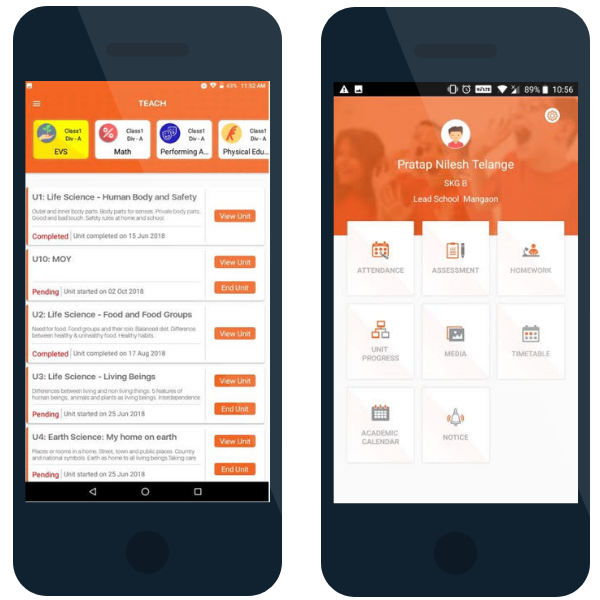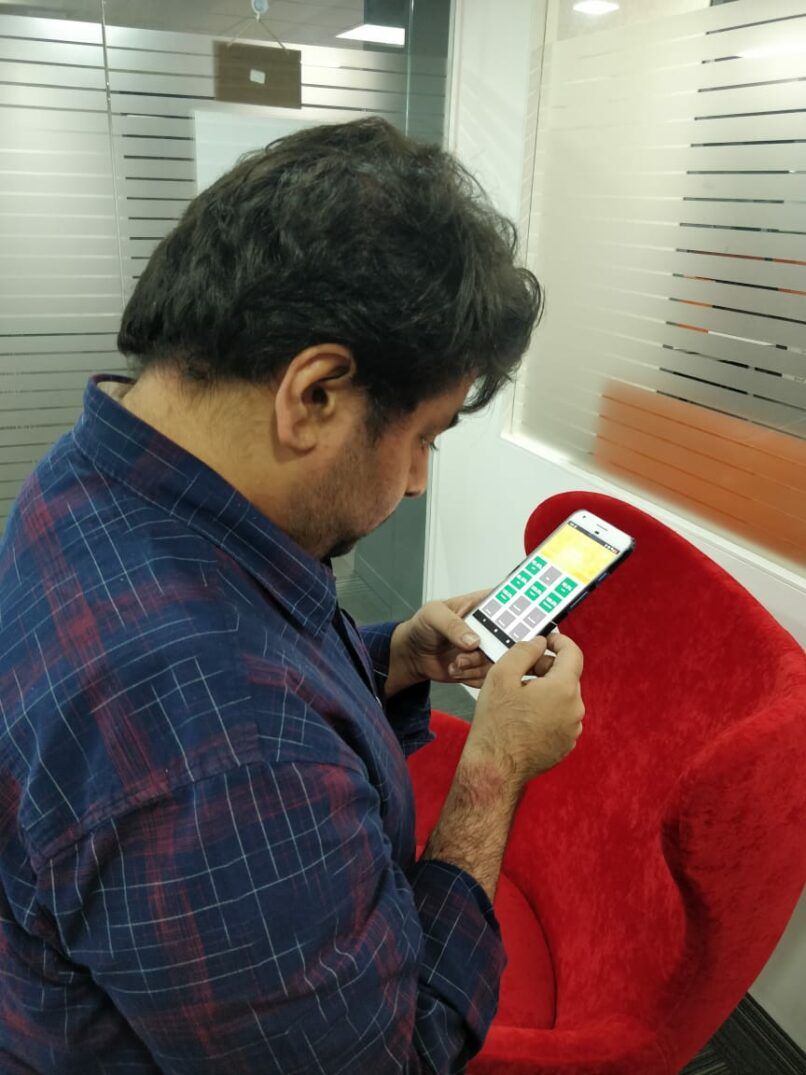Sumeet Mehta is the co-founder and CEO of LEAD Schools, a network of schools in small towns and rural areas in India. Previously Sumeet has worked as a teacher, as the CEO for Zee Learn Ltd and as a Brand Manager for Procter & Gamble Singapore.
LEAD Schools is a member organisation of the Ark venture, Global Schools Forum (GSF). GSF supports and represents non-state schools and school networks in low and middle-income countries, enabling them to better deliver quality education to children from low-income families.
This is the second in a series of blogs, all written by members of GSF, featuring stories showing how technology can be used to support schools throughout the world. Read the first here.
The best ideas always come when you’re sitting in the classroom. They don’t come in the office. At LEAD Schools, many of the products we have developed have been conceived in classrooms and then designed in the central office.
Going back to when we started LEAD, we’d visit our schools and find that teachers had not prepared a lesson plan even though we had trained them on it. Our schools are mainly in small towns and villages in India, and generally the families are semi-literate – most of them are farmers or local traders. The exposure to good teaching and good curriculum just wasn’t there. The schools were trying, but students weren’t learning, teachers were feeling lost and parents weren’t sure what was happening in the school.
I remember looking at the quality of a lesson plan of a teacher and scratching my head. The same teacher had given glowing feedback at a professional development session on lesson planning. I realised it was not that she didn’t want to improve. It was that she did not have a vision of what excellence looked like.

Another teacher remarked that lesson planning was something she would do once she had time free from her administrative jobs and her teaching. She spent her free periods checking over the homework of her students, updating attendance, and making marks lists. It seemed like routine had won over purpose.
I sat in the third teacher’s classroom and was struck by the time being squandered away in non-teaching and learning activities. For example, she would write long questions and answers on the blackboard and students would copy them down. She then wrote the homework on the blackboard, students copied it into their diaries. Finally the teacher checked every individual diary to see if the student had copied it correctly. I strongly felt that this time could have been better used for learning.
We realised that teachers were facing the challenge of either lack of awareness of good teaching, or lack of time to prepare and plan, or both. And we noticed that most of them were on WhatsApp and Facebook on their phones.
So we thought of utilising their native familiarity with smartphones and apps and decided to create a teacher app. We sat with teachers and asked them what do you want? They said that while their Principal expected them to make lesson plans, they didn’t know how to make a good one and even if they did know, they just didn’t have the time. Most of them had to rush back home to cook for their families. We shadowed teachers through the day to see where they spent their time. And we came back humbled.
These teachers were incredibly heroic. They were battling to gain respect in their home and community for the work they were doing. They were battling in school to just get by – between teaching, administration, assessment and reporting. They were battling with themselves to find meaning in their work. While some were loathe to admit it, most were silently screaming for help.
Our teacher app was designed to make life simple – to empower a teacher to teach excellently while being acutely aware of constraints and compulsions. The teachers could now have access to lesson plans and resources through the app. They could enter attendance data in one place and not have to worry about it. They didn’t have to worry about homework-writing and checking – the app took care of these things.
Once the app was launched, we saw a 21% reduction in time spent on admin work, meaning teachers had more time to prepare for their class. B

ut more importantly, we saw teachers’ confidence go up, and better engagement of their students
One day, I was in school and a teacher showed me the WhatsApp group used by the school parents. The teacher was sending them pictures of the class, reminders about upcoming assessments or events in school and sharing progress notes. But typing all of this out was taking time, so she would do it over the weekend. About 80% of our parents have smartphones. And they are always asking what is happening in school with their child. So the logical next step was for us to make a smartphone app for parents.
We built a simple app that allowed our teachers to share homework, unit progress, assessment data and pictures with parents. It caught on like a house on fire! Within two months, more than 50% of our parents were on the app. Now, almost 75% of our parents use it. Those who don’t still get critical information via text messages. Almost all of the parents use the app to monitor whether their child is doing their homework. They might not always be able to help, but they can ensure it is done, because they know what is happening in school. So they can connect with their children more. But their favourite feature is the picture function. We’ve found that 58% of parents share these pictures on social media at least once a week. It makes them feel more involved with their child’s learning, while keeping them engaged with the app too.
One of the key lessons that I took from working on our teacher and parent apps was that it was the parents, teachers and children who essentially built this. By being in the classroom, observing them, and learning from them, we were able to create something that improved their life.
Learn more about how the Global Schools Forum supports its member organisations around the world by visiting the website: www.globalschoolsforum.org
For more information about Ark Ventures click here.